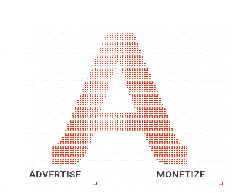Learning JavaScript quickly requires dedication, focus, and a structured approach. Here’s a step-by-step guide to help you learn JavaScript efficiently:
1. Understand Basic Concepts:
- Familiarize yourself with basic programming concepts like variables, data types, loops, and conditional statements.
2. HTML and CSS:
- Learn the basics of HTML and CSS as JavaScript is often used in web development to manipulate HTML elements and styles.
3. Online Tutorials and Courses:
- Use online resources like Codecademy, freeCodeCamp, or Khan Academy for interactive tutorials. These platforms offer hands-on coding exercises.
4. Books:
- Consider reading books like “Eloquent JavaScript” by Marijn Haverbeke or “You Don’t Know JS” by Kyle Simpson. They offer in-depth knowledge and examples.
5. Practice Regularly:
- Code every day. Practice coding challenges on websites like LeetCode, HackerRank, or Codewars to improve problem-solving skills.
6. Projects:
- Work on small projects. Start with simple tasks like form validation and then move on to more complex projects as your skills improve.
7. Interactive Coding Platforms:
- Use platforms like JSFiddle or CodePen to experiment with code in a live environment. You can see instant results, which can be very gratifying.
8. Version Control:
- Learn the basics of Git and GitHub. Version control is essential for collaborative coding and managing your projects.
9. Debugging:
- Learn how to use browser developer tools effectively for debugging. Understanding common errors and how to fix them is crucial.
10. Frameworks and Libraries:
- Once you have a good grasp of vanilla JavaScript, explore popular libraries and frameworks like React.js or Node.js if they align with your goals.
11. Community and Forums:
- Engage with the developer community. Participate in forums like Stack Overflow, Reddit communities, or local coding meetups. Learning from others and helping them can enhance your skills.
12. Stay Updated:
- JavaScript evolves. Stay updated with the latest ECMAScript features and best practices through blogs, podcasts, and official documentation.
13. Teach Others:
- Teaching reinforces your knowledge. Write blogs or create video tutorials about JavaScript concepts you’ve learned. Teaching others also helps in clarifying your understanding.
14. Seek Feedback:
- Ask for feedback on your code from experienced developers. Constructive criticism can help you improve significantly.
Remember, learning to program is a gradual process that requires patience and consistent effort. Don’t rush; focus on understanding the fundamental concepts, and the rest will follow naturally. Good luck!



